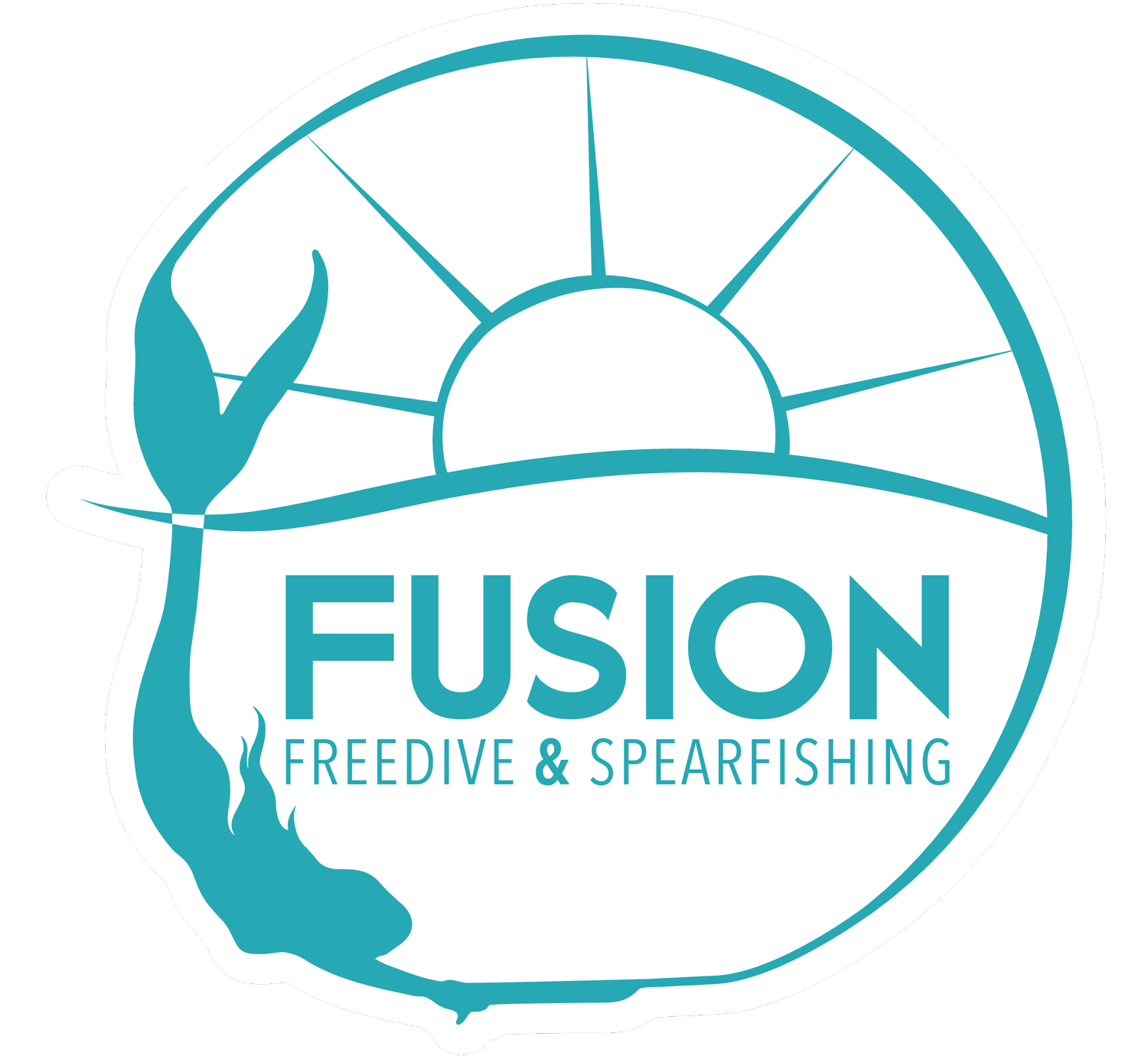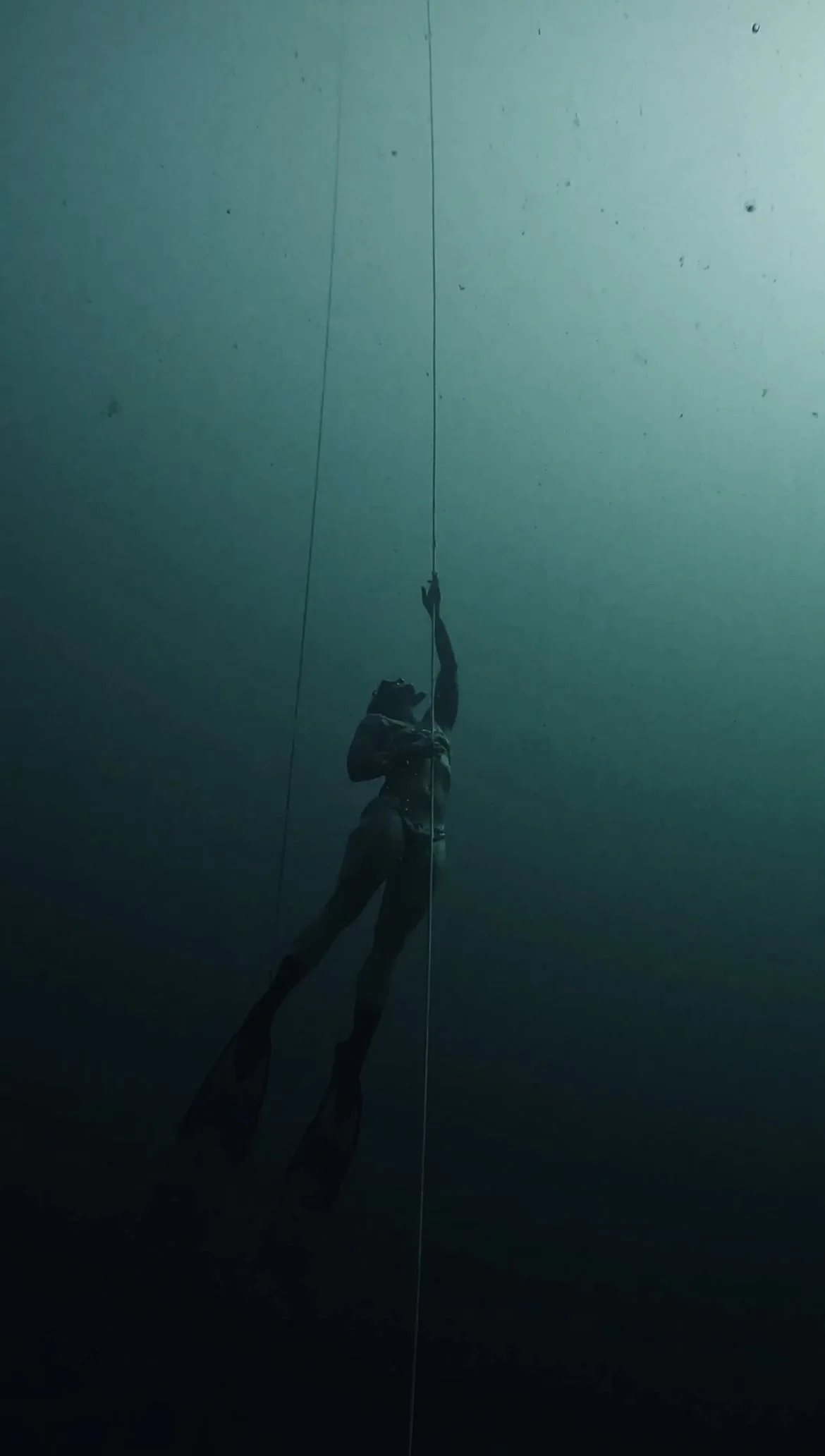Freediving Safety: Myths vs. Reality
Freediving is often perceived as an extreme and potentially dangerous sport. But is this reputation deserved? In reality, many of the risks people associate with freediving are based on myths or misunderstandings. When approached with proper training, knowledge, and respect, freediving can be a safe and incredibly rewarding experience. In this article, we’ll debunk common myths surrounding freediving safety and uncover the truth, emphasizing how training - like a freediving course in Bali - makes all the difference.
Myth 1: Freediving Is More Dangerous Than Other Water Sports
Reality: With proper training, freediving is no more dangerous than other popular water activities, like surfing, scuba diving, or even snorkeling.
Freediving safety depends heavily on technique, knowledge, and respecting one’s limits. Most incidents in freediving are the result of diving alone or ignoring basic safety protocols. But with trained instructors and adherence to established safety practices, freediving can be as safe as any water-based sport. In fact, many freedivers argue that freediving is safer than sports where equipment malfunctions can pose serious risks, such as scuba diving.
Takeaway: Completing a Bali freedive course with certified instructors can equip divers with the skills to stay safe, understand their body’s limits, and make informed decisions underwater.
Myth 2: Freedivers Hold Their Breath for Unbelievably Long Periods of Time
Reality: While it’s true that elite freedivers can hold their breath for several minutes, the majority of recreational freedivers stay submerged for much shorter intervals.
In a beginner or Molchanov freediving course, for instance, divers are taught to prioritize relaxation, not endurance. Many beginner dives last just 30 seconds to 2 minutes, focusing on developing control and comfort underwater rather than achieving extreme breath holds. Over time, with consistent training, freedivers can gradually increase their breath-hold times safely and responsibly.
Takeaway: Freediving emphasizes relaxation, not “holding out” underwater, making it accessible even to beginners who are just starting to explore breath-hold techniques.
Myth 3: Blackouts Happen All the Time in Freediving
Reality: Blackouts are rare in responsible, well-supervised freediving.
A blackout, or loss of consciousness due to lack of oxygen, can occur in freediving, but proper training significantly reduces this risk. Courses like the Molchanov freediving course teach divers how to listen to their body’s signals and surface well before any risk of blackout.
Freedivers are trained to dive with a buddy, monitor their breath-hold limits, and ascend well before they feel uncomfortable. In a structured course, students are taught to recognize and respect early signs of oxygen depletion. As a result, blackouts are uncommon among trained freedivers who adhere to safe diving protocols.
Takeaway: With appropriate training, divers can avoid blackouts, diving within safe limits and respecting their body’s signals.
Myth 4: Freediving Requires Extreme Fitness
Reality: Freediving is a sport for everyone, regardless of fitness level or athletic background.
While fitness and stamina can certainly enhance a freediver’s experience, it’s not a requirement. Freediving is largely about learning to relax and control your breathing, making it accessible to people of all fitness levels. A freediving course in Bali teaches beginners how to stay calm, manage their energy, and focus on technique rather than physical strength.
Many freediving courses attract students from all walks of life, from young adults to older participants, all of whom can find success in freediving at their own pace.
Takeaway: Freediving is more about mindset and technique than brute strength or endurance, making it an inclusive sport.
Myth 5: Freediving Equipment Is Minimal and Therefore Unsafe
Reality: Freediving equipment is purposefully designed to maximize safety, not compromise it.
Freediving gear is indeed minimal—a mask, snorkel, fins, and wetsuit. But each piece serves a specific purpose, and the simplicity of the equipment actually enhances safety. Fins provide efficient propulsion, helping divers save energy and ascend more smoothly. Masks are low-volume, minimizing the effort required to equalize underwater. Unlike in scuba diving, where equipment can malfunction, freedivers rely on their body and skills rather than complex gear, reducing the chance of technical issues.
In a freediving course, divers are taught how to use this equipment effectively and understand why less gear is actually beneficial to safety in freediving.
Takeaway: Freediving’s minimalistic gear enhances the sport’s safety, reducing technical risks and encouraging a natural, streamlined approach to the underwater world.
Myth 6: Freedivers Are Alone Underwater
Reality: Freediving is a highly social sport, and safety guidelines emphasize the importance of always diving with a buddy.
In every reputable freediving course, like those available at Fusion Freedive and Spearfishing in Bali, students are taught the importance of the buddy system. Diving with a partner not only enhances safety but also enriches the experience, allowing divers to support each other and keep a close eye out for any signs of distress. Solo freediving is highly discouraged, even for advanced divers, as having a buddy present is one of the most effective ways to ensure safety underwater.
Takeaway: Freedivers are rarely alone—following the buddy system is one of the most emphasized safety measures in the sport.
What You’ll Learn in a Freediving Course
A certified freediving course in Bali covers essential safety skills to prepare divers for a safe experience in the ocean. Courses, like the Molchanov freediving course, teach students how to:
Properly hold and relax their breath
Recognize early signs of low oxygen and safely surface
Perform rescue techniques for themselves and their buddy
Build confidence underwater without taking unnecessary risks
Through hands-on training and expert guidance, freediving courses ensure students leave with a comprehensive understanding of both safety protocols and techniques.
Ready to Dive In? Join a Freediving Course in Bali!
Freediving is a safe and exhilarating way to explore the ocean when done responsibly. By debunking these myths and understanding the facts, you can dive into the sport with confidence, knowing that a certified course will equip you with all the skills you need. Discover the beauty of Bali’s underwater world through a freediving course at Fusion Freedive and Spearfishing, where safety, knowledge, and respect for the ocean are at the heart of the experience.




